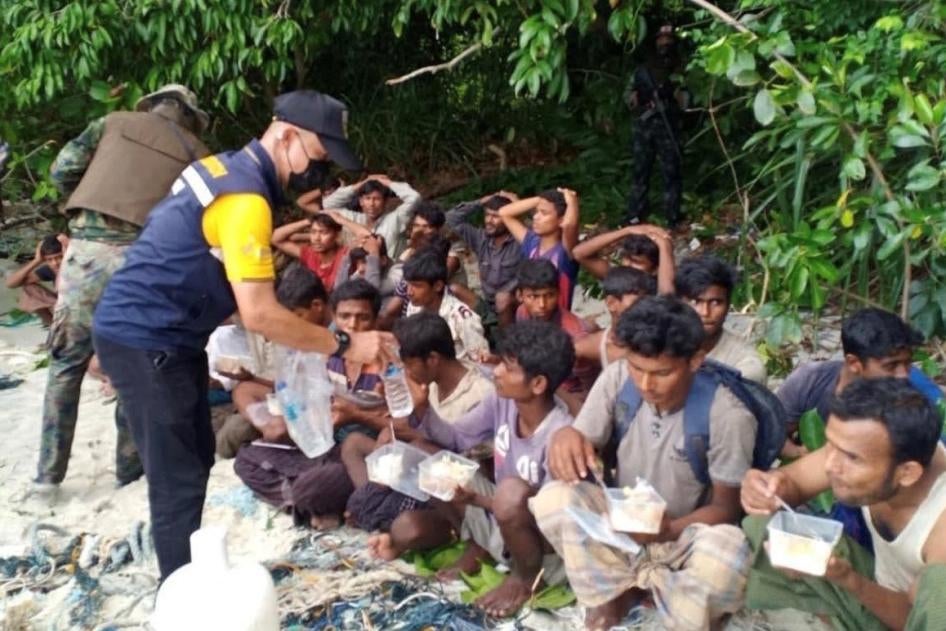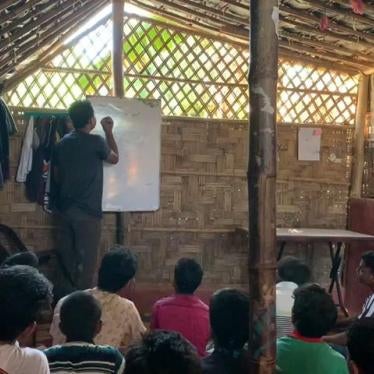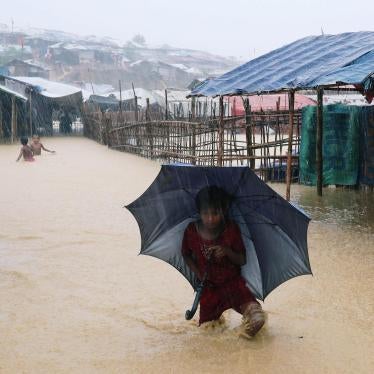(Bangkok) – The Thai government should provide recently rescued Rohingya asylum seekers with assistance and immediate access to procedures to determine their refugee status, Human Rights Watch said today.
On June 4, 2022, the Thai navy found 59 Rohingya – 31 men, 23 women, and 5 children – from Myanmar stranded on Koh Dong Island near Satun province in southern Thailand. The navy took them ashore and detained them at the 436 Border Patrol Police unit. Thai officials who questioned them said these Rohingya were abandoned by smugglers, who charged them about 60,000 Thai baht (US$1,750) per person for a journey to Malaysia.
“The Thai government should end its policy of summarily locking up rescued Rohingya people and throwing away the key,” said Elaine Pearson, acting Asia director at Human Rights Watch. “Thailand should permit the United Nations refugee agency to screen all Rohingya arriving in Thailand to identify and assist those seeking refugee status.”
To protect Rohingya asylum seekers, it is crucial for the Thai government to permit the Office of the UN High Commissioner for Refugees (UNHCR) to conduct refugee status determination interviews, Human Rights Watch said.
Like its predecessors, the Thai government of Prime Minister Gen. Prayut Chan-ocha has treated Rohingya arriving at the border as “illegal immigrants,” detaining them in squalid lockups. According to one Western embassy in Bangkok, Thai officials are holding more than 470 Rohingya in indefinite immigration detention with no access to refugee status determination procedures. Thai authorities have not permitted UNHCR to conduct refugee status determinations for them. Thailand also discriminates against Rohingya by refusing to allow them to register as legally documented migrant workers, unlike other people coming from Myanmar.
Meanwhile, the Thai navy announced that it will maintain a policy to intercept Rohingya boats that come too close to the coast. After providing them with fuel, food, water, and other supplies, the navy will push those boats pushed onward to Malaysia or Indonesia. This amounts to a continuation of Thailand’s deadly pushback policy, which has resulted in Rohingya boats going missing on the high seas and people dying, Human Rights Watch said.
The Thai navy further stated that any boat that somehow lands on Thai shores will be seized, and immigration officials will arrest the men, women, and children aboard on illegal entry charges and detain them.
Thai authorities have, for years, said they do not want to accept Rohingya as refugees. However, under international law, Thailand cannot summarily reject at the border the claims of asylum seekers fleeing persecution. Thailand is obligated not to return them before providing a full and fair assessment of their claims for international protection, Human Rights Watch said.
The Myanmar government and military have long persecuted the Rohingya, members of a Muslim ethnic minority group who have lived in Myanmar’s Rakhine State for generations, driving them to flee repression and dire poverty. The situation has significantly worsened since August 2017, when the Myanmar military committed ethnic cleansing and crimes against humanity against the Rohingya.
Given the lack of security and overcrowded, unsanitary and dangerous camp conditions where many Rohingya are forced to live in Bangladesh, many have risked harsh weather conditions on the Andaman Sea to embark on dangerous journeys to Thailand, Malaysia, and Indonesia, often falling prey to human trafficking gangs.
“The Thai government should help the oppressed Rohingya, not worsen their suffering,” Pearson said. “The Thai government should immediately allow them access to desperately needed protection.”









